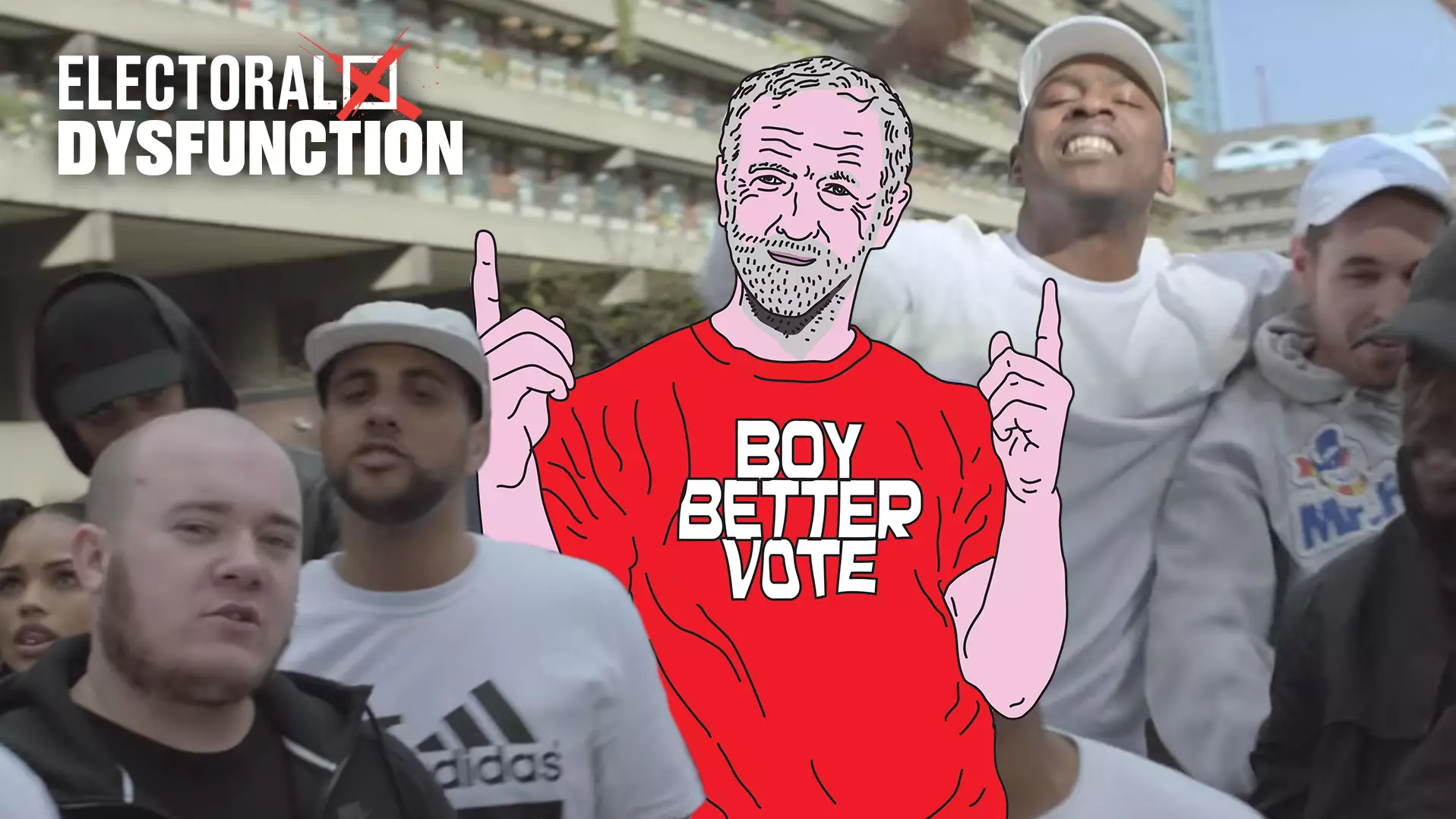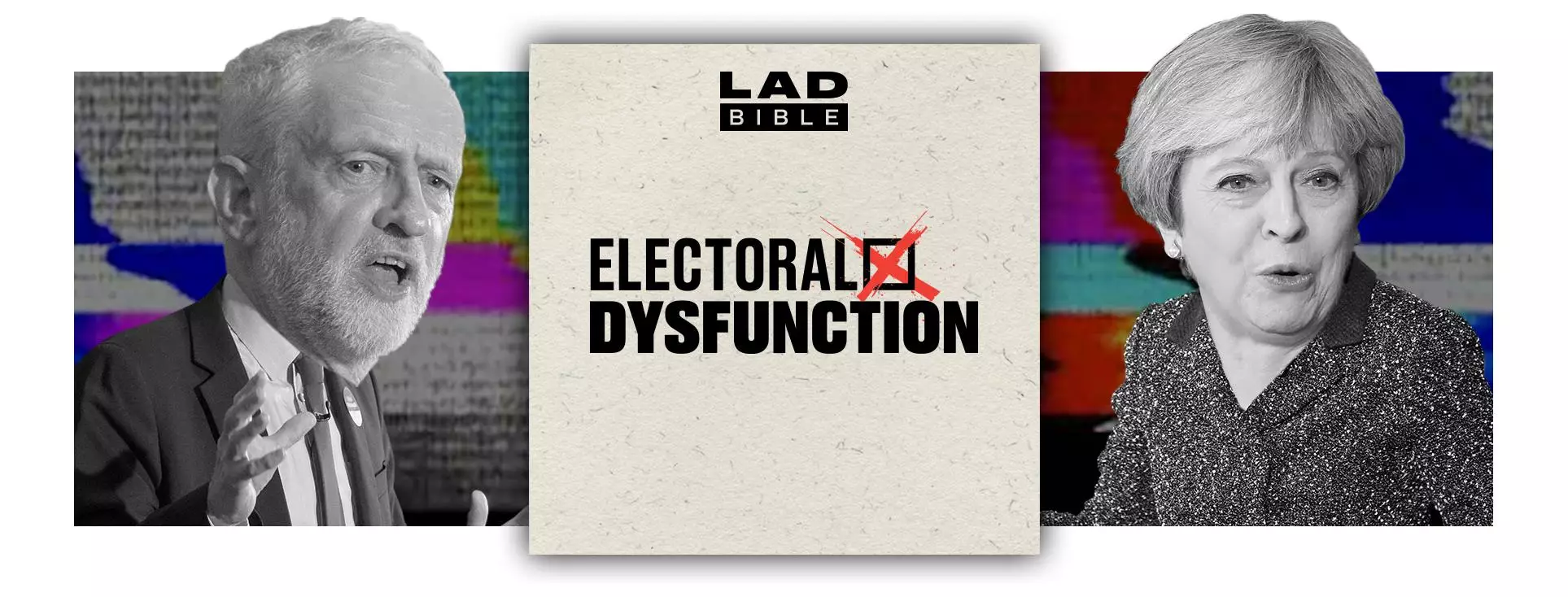
At 19 years old, this will be the first General Election in which Josh Bourne is eligible to vote.
Despite having an interest in politics, when Prime Minister Theresa May called the election for 8th June, Josh was not on the electoral register. He describes how he 'never wanted to vote'; not, he insists, because he 'couldn't be bothered' but because he had 'always felt [his] vote wouldn't make a difference'.
"I'd often hear 'it doesn't change anything'. People have this perception of politicians being 'liars' and all being 'the same'," Josh told LADbible.
Advert
Although they have more of a stake in the future than any other voting demographic, this political apathy from young people has previously been reflected in voter turn-out. In 2015, just 43 percent of 18-24-year-olds turned out to vote compared with 78 percent of over-65s.
But Josh will be voting at this General Election. His engagement in the political process began - not after he watched the debates or he attended a political rally - but after he tweeted Grime artist JME and received a reply.
"I never actually expected a response from the initial tweet," said Josh. "But he directly tweeted me twice when I tweeted him regarding the registration process. It definitely made me think more about the issue. It made me feel that it was my responsibility to vote."
Ahead of the deadline for registration, realising he had a platform by which he could influence his fans to become politically active, Boy Better Know co-founder JME began tweeting his 700K strong followers, urging them to register to vote and have their voice heard.
Advert
As a genre that has its origins on London estates - as a social reaction and comment by young, black, working-class MCs on the world around them - grime has always expressed a struggle against authority. Its artists have repeatedly had their shows clamped down on by London authorities - an issue that was subject to a documentary in 2014.
Jeffrey Boakye, the author of Hold Tight: Black Masculinity, Millennials & The Meaning Of Grime, describes grime as 'a powerful genre of protest music'. He writes: "The soundtrack to disaffection. A punkish scream of discontent. A culture that, simply by existing, challenges social structures that disempower marginalised youth in urban environments."
Dizzee Rascal - first wave grime's most commercially successful act - rapped in 2003 that he "had a problem for Anthony Blair" on Boy In Da Corner's 'Hold Ya Mouf', and Lethal Bizzle described David Cameron as a 'doughnut' in 2006.
But following Jeremy Corbyn's election as Labour leader two years ago - and coinciding with the genre's mainstream revival, led by the commercial successes of Skepta and Stormzy - the musicians' politics has taken on a markedly party political dimension.
Advert
In the run up to the vote, a viral video shared and produced by i-D Magazine saw JME meet and question Corbyn, and has been viewed more than three million times on Facebook.
When LADbible spoke to 18-year-old Levi Clemens, who describes himself as a 'massive grime fan', he said that without the JME / Corbyn interview he would have stayed at home on polling day as he usually takes little interest in politics. This proves the influence of grime is about getting people to vote without a political bias.
"Honestly, without that interview I would not have voted as I was clueless on who I was voting for or why," he said. "I always knew that voting was a very important deal for everyone, it's just I've always been unsure of who to vote for. But the clear message from the interview was just to vote as it's our future that counts."
Advert
Levi added: "I'm still yet to 100 percent make up my mind. I'm planning on voting for either Labour or Lib Dem, I still need a good look through their manifestos. I like that Labour are looking to crack down on the housing crisis, but Liberal Democrats are taking the lead on a more research-led drugs policy."
AJ Tracey, Novelist - who joined the Labour Party last June - and Akala, have each spoken out publicly in support of Corbyn, with breakout act Stormzy also telling the Guardian last May that he felt the Labour Leader 'gets what the ethnic minorities are going through and the homeless and the working class'.
Building on this momentum, the #Grime4Corbyn hashtag campaign has invited young people who registered to vote to a secret grime rave to 'build on the support for Corbyn amongst grime artists and connect this to young voters'.
Advert
Historically, when chart musicians have become involved in politics, the lasting influence has been negligible - think the anarchy of punk fizzling into the introverted navel-gazing of post-punk, or how '80s 'Red Wedge' music protests failed to oust Margaret Thatcher. Let us also not forget that, in 2010, Nu Brand Flexx performed on Newsnight with a 'campaign song' for the Tories, and former Lib Dem MP Norman Lamb once claimed he was 'living the grime scene'. The grime vehicle is not party-specific.
Yet social media in 2017 has fundamentally changed the relationship between artists and their fans. Twitter means that music lovers no longer get access to their favourite artists' views through press interviews and gigs and they are instead able to interact directly with the musicians.
And grime artists - many not bound by the restrictions of being signed to major labels - now hope that their influence has the potential to tap into a voter base often neglected by politicians due to its historic unwillingness to come out to vote.
As A-level student Salal Amjad, 18, explained to us, he was put off voting, as he did not trust the news media's 'clear bias'. But having followed JME's social media posts and viral video, Salal decided he would vote.
"JME is someone close to the people, and this made me realise that people of my generation were part of this system, too," said Salal. "I feel as though the campaigners have realised how many sheer numbers there are of young people who can be utilised to vote, who do not fully understand about the importance of it upon our futures."

If 18-24s do turnout in record numbers on Thursday, they could have a say. In fact, a report by Novara Media, which analysed Electoral Commission, Office for National Statistics (ONS) and national polling data, estimated that under-25s could have 'a significant impact' in at least 44 of the country's marginal constituencies.
Music student Sam Scattergood, 21, is optimistic about the election. "Grime is a way for the youth to voice their own opinion," he said. "It's not just a London thing, it's all around the UK now and we're seeing grime artists go global." That is the scale of grime's influence in youth society and politics.
And if, as polling company YouGov's general election poll weightings appear to suggest will be the case, youth voter turnout is higher than in 2015, the influence of grime could mean the General Election result is more interesting than many political experts initially expected.
Topics: general election, Election, Labour
